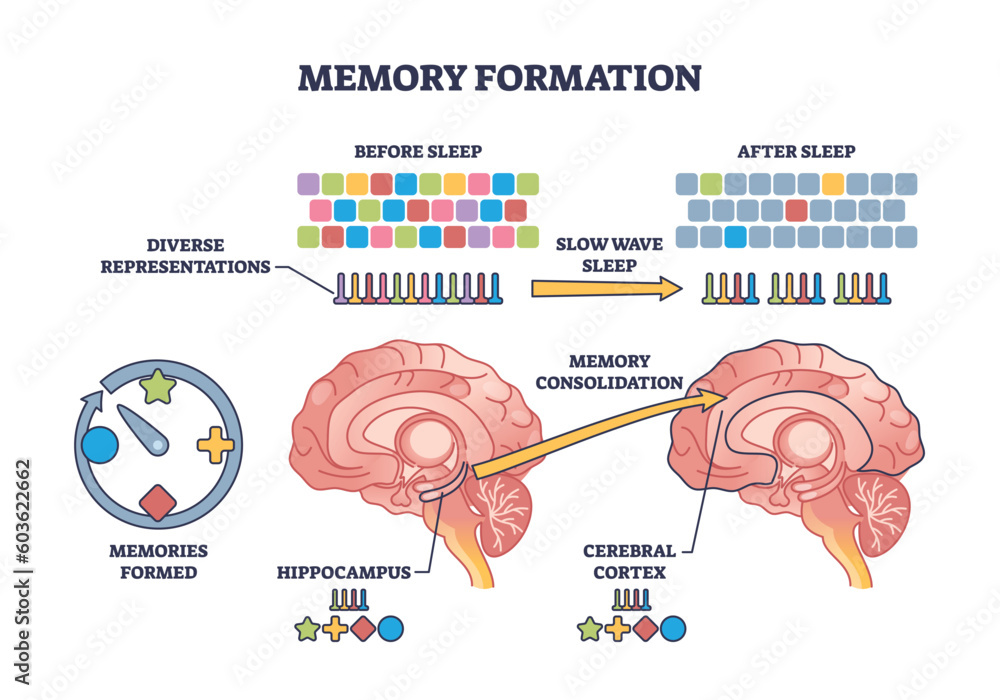
CRISPR Gene Editing: Ethical Challenges and Health Impact
CRISPR gene editing has emerged as a groundbreaking technology in the realm of genetics, poised to revolutionize the landscape of medicine. With the promise of curing genetic disorders such as sickle cell disease, CRISPR offers hope to countless patients and families. However, the ability to modify genes comes with serious gene editing ethics that must be carefully navigated. As advancements in CRISPR technology unfold, the implications for health justice reveal a stark reality: not all patients may have equal access to these potentially life-saving treatments. The ongoing discourse surrounding gene therapy critically examines not just the science, but also the morality of altering human DNA for the sake of a perceived betterment.
Gene editing through CRISPR represents an innovative approach to modifying genetic material, offering unprecedented possibilities for treating various hereditary conditions. This cutting-edge technology enables scientists to precisely alter DNA sequences, potentially alleviating ailments like sickle cell anemia and addressing broader health concerns. Nevertheless, the conversation extends beyond scientific capabilities; it delves into the profound ethical considerations that accompany such interventions. Issues of equity in gene therapy access and the health justice implications of these innovations challenge our societal values and moral frameworks. As we tread this complex path, understanding and addressing the multifaceted challenges of genetic modification become imperative.
Understanding CRISPR Gene Editing: The Basics
CRISPR gene editing has revolutionized the way scientists approach genetic diseases, offering unprecedented precision in altering DNA sequences. By utilizing a guide RNA to identify specific genetic targets, CRISPR technology enables the modification of both somatic and germline cells. This breakthrough empowers researchers to address inherited disorders, such as sickle cell disease, where genetic mutations lead to debilitating health risks. The simplicity and efficiency of CRISPR have made it the tool of choice in numerous experiments, ranging from basic research in model organisms to potential therapeutic applications in humans.
However, understanding CRISPR gene editing goes beyond the science; it necessitates a nuanced dialogue incorporating ethical perspectives. The ability to make deliberate changes at the genomic level raises profound questions about the implications of such interventions. As we navigate this technological frontier, considerations around consent, equity, and the potential for unintended consequences become increasingly critical. Advocates for responsible gene editing emphasize the importance of fostering an inclusive dialogue that integrates the voices of patients, ethicists, and policymakers.
Ethical Considerations Surrounding Gene Editing
The ethical landscape of gene editing is complex and multifaceted, reflecting deep societal beliefs about health, disease, and identity. As discussed in recent talks on CRISPR technology, the capacity to edit human genes introduces debates on what constitutes a ‘normal’ human condition. For instance, should gene editing be employed to alter traits related to diseases that are compatible with life, such as Down syndrome? This provokes questions about parental rights versus the autonomy of future generations, raising concerns about the moral implications of ‘designer babies’.
Moreover, the financial implications of CRISPR advancements must be scrutinized. With treatments like the sickle cell gene therapy costing upwards of $2.2 million, accessibility becomes a pressing issue. Ethical considerations also extend to the global landscape; disparities in healthcare funding and technology access can exacerbate existing inequities. What responsibility do innovators and governments hold in ensuring that these groundbreaking treatments are fairly distributed, particularly in low-resource settings? The discourse around gene editing ethics is not just an academic exercise but a direct reflection of our values as a society.
Curing Sickle Cell Disease: Promise and Pitfalls
Sickle cell disease is a devastating condition that affects thousands of individuals, primarily of African descent, causing chronic pain and significant health complications. The emergence of CRISPR technology offers the potential for a cure, allowing scientists to target and edit the faulty gene responsible for this disorder. This development is lauded as a monumental step forward in gene therapy, providing hope to families grappling with the challenges of hereditary diseases. The prospect of effectively curing sickle cell through gene editing opens doors to new treatment paradigms that prioritize health and well-being.
However, while the promise of a cure is exhilarating, it is essential to tread carefully. The substantial cost associated with CRISPR interventions raises critical questions about equity and access to advanced medical treatments. If such technologies remain largely available only to affluent communities, the health disparities faced by underrepresented populations may widen further. As healthcare professionals and ethicists advocate for health justice, it becomes imperative to ensure that breakthroughs in treatment do not perpetuate existing inequalities but rather contribute to a more equitable healthcare landscape.
Health Justice Implications of Genetic Editing
The implications of CRISPR gene editing extend beyond individual health outcomes; they encompass broader societal issues related to health justice. The ability to edit genes offers transformative potential, yet it simultaneously raises questions about who gets to benefit from these advancements. The disparities in access to cutting-edge therapies, such as those that may emerge from CRISPR technology, can reflect and reinforce socioeconomic inequalities. For instance, families with lower health literacy or financial resources may struggle to access emerging treatments for conditions like sickle cell disease.
Equity in healthcare requires a robust conversation about the policies and frameworks that govern the deployment of gene editing technologies. It is vital to advocate for inclusive practices that consider the diverse needs of various communities, ensuring that all patients have equitable access to life-altering therapies. By emphasizing health justice in discussions surrounding gene editing, we can promote a more ethical approach that aligns scientific advancements with societal goals of fairness and shared benefit.
The Future of Gene Therapy: Possibilities and Precautions
As we look toward the future of gene therapy propelled by CRISPR technology, the possibilities are vast and promising. From potential cures for genetic conditions to advancements in other areas of medicine, the field holds transformative implications for treating a variety of diseases. Scientists continue to explore innovative ways to harness gene editing capabilities, expanding the horizon of what can be treated. The prospect of personalized medicine — where therapies are tailored to the individual’s genetic makeup — is becoming increasingly feasible due to advancements in this field.
However, the promise of these advancements must be tempered with precautionary measures. Ethical oversight and regulatory frameworks are necessary to guide the use of CRISPR and ensure responsible application in clinical settings. Unintended consequences and long-term effects of gene editing remain a concern, necessitating rigorous research and vigilant monitoring. The future of gene therapy must be pursued with a conscientious approach, balancing innovation with an unwavering commitment to ethical principles and public trust.
CRISPR Technology: Transforming Medical Research
CRISPR technology has not only revolutionized gene editing but has also transformed medical research as a whole. Researchers are leveraging this powerful tool to gain insights into the genetic underpinnings of diseases, facilitating a deeper understanding of pathologies that previously eluded scientists. By enabling precise modifications to genes, CRISPR allows for experiments that reveal the role of specific genetic variants in disease processes. This technology is driving forward the field of genomics at an astonishing pace, creating a wealth of knowledge that can inform drug development and therapeutic interventions.
Additionally, the collaborative nature of CRISPR research fosters interdisciplinary engagement among scientists, ethicists, and clinicians. Projects utilizing CRISPR are often embedded within broader research initiatives that seek to address not just the biological aspects of diseases but also the ethical and societal implications tied to genetic modifications. As we embrace the transformative potential of CRISPR technology, maintaining a multidisciplinary perspective will be crucial in ensuring that research translates into meaningful advancements in healthcare.
Genetic Variability and Human Rights: A Delicate Balance
The advancements in CRISPR technology prompt vital discussions about genetic variability and human rights. For many, genetic conditions represent a spectrum of human diversity rather than disorders that require correction. Advocates argue that the potential for gene editing to change human traits poses significant ethical dilemmas, particularly regarding the respect for human dignity and the definition of health. This perspective emphasizes the importance of recognizing that variations, whether in genetic predispositions or physical attributes, contribute to the rich tapestry of human existence.
However, the delicate balance between embracing genetic diversity and pursuing health advancements through CRISPR requires careful navigation. While there is potential for tremendous benefits in curing debilitating diseases, the push to ‘normalize’ certain traits could lead to ethical pitfalls related to eugenics and discrimination. Upholding human rights in the context of genetic editing calls for transparent discussions and inclusive policies to ensure that the technological advancements do not undermine the value of human diversity and the rights of individuals.
Public Perception and Acceptance of Gene Editing
The public’s perception and acceptance of gene editing technologies like CRISPR play a crucial role in determining the direction of research and policy implementation. Education and transparency are key components in fostering a well-informed citizenry that understands both the benefits and risks associated with genetic modifications. Engaging communities in discussions about gene editing can help demystify the science and address societal concerns regarding ethics, safety, and accessibility. Public forums, educational initiatives, and outreach can empower individuals to participate in the dialogue surrounding the implications of these technologies.
Furthermore, as technology outpaces regulation, addressing public concerns about safety and ethics is paramount for gaining public trust. As genetic editing moves closer to clinical applications, ensuring that the public feels involved and informed can help navigate fears of misuse or unintended consequences. Ultimately, fostering a culture of openness and responsiveness will be essential for the responsible advancement of CRISPR gene editing in society.
Impact of Global Regulations on CRISPR Advances
The impact of global regulations on CRISPR advancements cannot be understated; national policies dictate the ethical landscape in which gene editing research and applications occur. Various countries hold different stances on germline editing, with some permitting research while others impose strict bans. This disparity can lead to a patchwork of innovation, affecting research collaborations and the equitable distribution of technological benefits. Countries that prioritize responsible regulation may set a precedent for how gene editing technologies are utilized, ensuring ethical standards align with societal values.
Moreover, international cooperation is essential in addressing the challenges posed by unregulated gene editing in countries with lax oversight. Instances of rogue genetic experimentation could pose risks not only to individuals involved but also to the global community at large. Strengthening international regulatory frameworks will be vital in harmonizing standards and promoting ethical research practices worldwide, ideally fostering an environment where CRISPR can be leveraged to its fullest potential while safeguarding against misuse.
Frequently Asked Questions
What is CRISPR gene editing and how does it relate to gene therapy?
CRISPR gene editing is a revolutionary technology that allows scientists to alter DNA sequences and modify gene function. It is part of gene therapy, which aims to treat or prevent diseases by correcting defective genes, such as those causing sickle cell disease. CRISPR technology enables precise edits to both somatic and germline cells, promising potential cures for genetic disorders.
What are the ethical considerations surrounding CRISPR gene editing?
The ethical considerations of CRISPR gene editing include questions about its implications for human diversity and the potential to create ‘designer babies.’ This technology raises concerns about who decides what traits to modify and the fairness of access to these advanced therapies, particularly regarding health justice implications for different socio-economic groups.
Can CRISPR technology effectively treat sickle cell disease?
Yes, CRISPR technology has shown promise in treating sickle cell disease by editing the genes responsible for the condition. By manipulating somatic cells, researchers have been able to remove the genetic defects causing the disease, offering a potential cure, although the high cost of treatment and access remain significant challenges.
How does CRISPR gene editing raise questions about health justice?
CRISPR gene editing raises health justice implications as it may exacerbate health inequities. As advancements in gene therapy become available, there is a risk that only affluent populations will benefit, leaving marginalized groups without access to potentially life-saving treatments, raising ethical concerns about fairness in healthcare.
What are the risks associated with using CRISPR technology for genetic modifications?
While CRISPR technology holds great potential, there are significant risks, including unintended genetic alterations that may lead to unforeseen health issues. Additionally, the possibility of germline editing, which affects future generations, raises ethical questions about consent and the long-term impacts on human evolution.
How is CRISPR gene editing being regulated in different countries?
Regulation of CRISPR gene editing varies globally. In some countries, strict laws prohibit germline editing, while others may have lax oversight. This disparity raises concerns about unregulated experimentation, such as potential genetic modifications being conducted in countries with weaker policies, posing ethical and safety risks.
What role do public opinions play in the ethical discussions of CRISPR technology?
Public opinion is crucial in shaping the ethical discussions surrounding CRISPR technology. Heightened awareness and dialogue around gene editing ethics can influence regulations and guidelines, ensuring that societal values are considered in the development and application of gene therapies.
Why do some oppose the use of CRISPR for enhancing traits rather than curing diseases?
Opposition to using CRISPR for enhancing traits rather than solely for curing diseases stems from concerns about social equity, the creation of social divides based on genetic modifications, and the philosophical question of what constitutes normal human variation. Critics argue that gene editing should focus on alleviating suffering rather than creating ‘designer’ attributes.
What advancements have been made in CRISPR technology for curing genetic diseases?
Recent advancements in CRISPR technology include successful trials targeting genetic diseases like sickle cell disease, where researchers have used gene editing to correct mutations. This progress demonstrates the potential for CRISPR to transform gene therapy, offering new hope for individuals with previously untreatable conditions.
How does CRISPR gene editing intersect with the discussion on human rights?
CRISPR gene editing intersects with human rights discussions as it raises questions about bodily autonomy, the right to health, and the ethical implications of treating or modifying human lives. The manner in which these technologies are developed and deployed can significantly affect individual rights and societal norms.
| Key Points | Details |
|---|---|
| Introduction to CRISPR | Discusses the potential and ethical concerns of gene editing technology. |
| Cure for Sickle Cell Anemia | CRISPR can cure sickle cell by editing somatic cells, but ethical dilemmas arise. |
| Germline vs Somatic Editing | Somatic editing alters cells in individuals, while germline editing affects embryos. |
| Cost and Accessibility | The sickle cell cure costs approximately $2.2 million, raising questions about fairness and equity. |
| Ethical Questions | Debate on using CRISPR for conditions compatible with life, like Down syndrome. |
| Social Justice | Need to consider health justice in innovation; it often creates disparities. |
| Parental Decisions | Concerns about parents deciding genetic modifications for their children. |
| Oversight and Regulation | Questions about regulatory frameworks in countries like Russia and China. |
| Unintended Consequences | Genetic editing may have unforeseen effects on various bodily functions. |
Summary
CRISPR gene editing stands at the forefront of modern medical innovation, offering groundbreaking possibilities for treating genetic disorders like sickle cell anemia. However, its potential comes with significant ethical considerations that must be addressed. As we explore the capabilities of CRISPR, we are faced with questions about fairness, health equity, and the moral implications of altering human genes. The discourse surrounding CRISPR emphasizes the importance of balancing the benefits of such technology with the moral responsibilities we hold towards society and individuals. Thus, while CRISPR gene editing might pave the way for miraculous cures, it is imperative that we tread carefully, considering both the profound scientific potential and the ethical risks involved.


